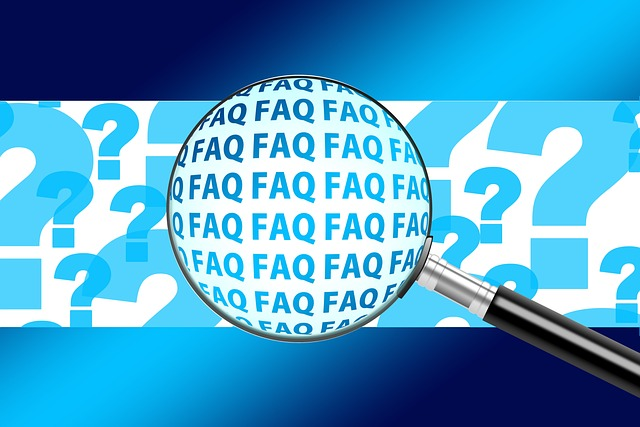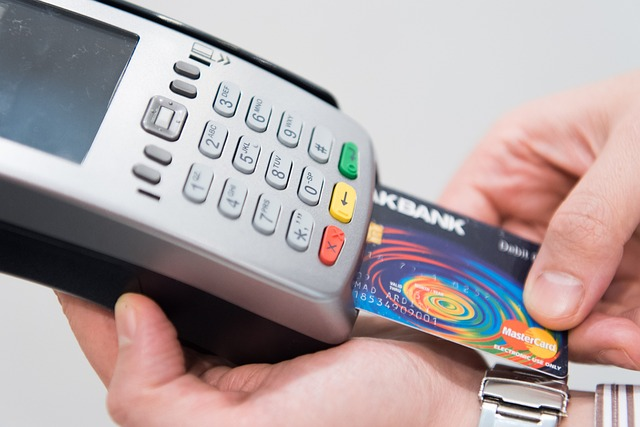What is a Personal Guarantee for Business Loans?
A personal guarantee (sometimes abbreviated as “PG”) is a legally binding pledge to repay the business loan. It allows lenders to pursue the business owner’s personal assets if the company defaults on the loan.
Many businesses have limited liability, meaning individual business owners have some insulation from issues affecting the business. For example, if someone sues your business, limited liability protections prevent them from suing you personally or getting a judgment against your personal assets. The lawsuit would only apply to business revenue and assets.
A personal guarantee circumvents those limited liability protections, putting your personal assets at risk in the case of a loan default. It provides more security for the lender but less protection for you.
Many business lenders require business partners with a 20% or greater ownership stake to sign a personal guarantee before approving a loan. Even when it’s optional, a signing one can often lower the interest rate on the loan.
The following financial institutions require guarantees for small business loans:
- Banks and credit unions.
- Online lenders.
- Government lenders.
How do Personal Guarantees work?
You’re usually required to agree to a PG when you apply for a loan. It’s one of the documents you’ll sign during the closing process.
Lenders first pursue business collateral if your business defaults on the loan. Lenders can pursue the money from your assets if there’s a remaining balance after foreclosing on business assets. Personal assets such as your home or car could be compromised.
In some cases, the lender might sue for the remaining amounts. Judgments could include garnishing wages, going after personal property, or money in your accounts. You might have to file for bankruptcy if you don’t have the funds to cover what’s owed.
There are two main types used in business financing: unlimited and limited.
Unlimited Personal Guarantees
An unlimited personal guarantee means the lender can pursue the full amount owed. You’re liable for the entire loan amount.
Limited Personal Guarantees
A limited personal guarantee sets a cap on how much the lender can pursue in the case of a default. The limitation is usually defined in the PG and loan agreement.
Why do Lenders require a Personal Guarantee?
There are several reasons why a lender requires a personal guarantee.
Unsecured Business Loans – No Collateral
Many lenders offer unsecured business loans, also called a no-collateral business loan. That’s good for businesses without high-value business assets to provide as collateral. A secured loan includes collateral. It’s called a secured loan because the collateral provides security for the lender.
However, lenders still want to protect themselves against losing money in a default. That often means singing a PG to get to the unsecured loan. In addition, an unsecured business loan is likely to have higher rates and more fees than a secured business loan.
While a PG is more likely with unsecured business loans, both secured and unsecured loans may require it.
Offset Credit Risk
In most business loans, lenders check the personal credit history of each business owner with a 20% stake or greater. They will also look at the business credit history.
In addition to reviewing credit profiles, lenders look at your cash flow, revenue, and time in business. If there are any concerns about repayment, whether due to low credit, cash flow issues, or time in business, the lender will likely require a personal guarantee.
Government Requirement
Some government-backed business loans also require a personal guarantee. For example, essentially all SBA and USDA loans mandate a PG.
What are the benefits and drawbacks of a Personal Guarantee?
A personal guarantee can help you get approved for the best unsecured business loans. Many loans require a guarantee, or you won’t be eligible.
In some cases, a guarantee is required instead of collateral. This can help you get a loan when you don’t have real property or tangible assets to pledge as collateral. Personal guarantees are required for SBA loans.
Personal guarantees significantly increase your risk when taking out a business loan. You’re personally responsible for paying back any amount owed if the business defaults on the loan.
Defaulting on a loan could impact your personal credit score and ability to borrow in the future. In worst-case scenarios, you might have to file for bankruptcy if you can’t afford the repayment.
Personal Guarantee Pros & Cons
Pros:
- Could help get approved for a loan, even with bad credit.
- Might help with unsecured financing.
- Required for SBA loans.
Cons:
- Increases your individual risk for business loans.
- Could lose personal assets.
- Could damage your credit score if you default.
How can I avoid a Business Loan Personal Guarantee?
There’s no surefire way to avoid a PG. Some lenders require them no matter what. However, since personal guarantees provide extra security for lenders, improving your credit profile to be as low-risk as possible gives you the best chance at avoiding the requirement.
Here are some actions that could help you avoid a personal guarantee on business financing options.
Improve Credit
Your personal credit is often vital in business loans. Getting your FICO score into the exceptional range could reduce the chances a lender will ask for it.
It’s even more important to build good business credit history. If your business has an outstanding credit profile, lenders will perceive lending to your company as a lower risk.
Income
Businesses with high annual revenue and strong cash flow stand a better chance of getting no personal guarantee business financing. High revenue is indicative of a business being successful. Strong cash flow demonstrates excellent operational efficiency and the ability to repay the loan.
Business History
Lenders prefer working with established companies with a proven success track record. Nearly 30% of new small businesses fail in the first two years, which is why many traditional lenders require at least two years in operation. Older businesses are seen as more stable and less likely to require a personal guarantee.
Negotiate
Business loans are a business deal like any other, so there’s sometimes room to negotiate. A business owner could potentially improve their terms by talking to the lender – it never hurts to ask, at the very least.
There’s no guarantee you can get the terms you want, but you should try to get the best offer possible. Sometimes, you might not have the experience or time to negotiate deals with a lender.
If that’s the case, you could consider working with a business loan broker applying to a business lending marketplace. Business loan brokers maintain relationships with lenders and know the industry. They can often negotiate the best deals on your behalf.
Shop Around
Getting multiple loan offers and prequalifying where possible is usually a good idea. It not only helps you find the best rates and terms but could also help you find loan options with no PG requirement.
Again, if you don’t have the time or interest in researching and applying to multiple lenders, consider working with a business loan marketplace. You can complete a single application that gets sent to various lenders.
It’s possible to receive several loan offers and then work with a loan executive from the marketplace to zero in on the most advantageous option.
What Business Loans don’t require a Personal Guarantee?
Unfortunately, there’s no definitive business loan category that doesn’t require a PG. It depends on your qualifications, the lender, and the loan type. Most unsecured business term loans require a PG.
Here are the types of business funding with the best chance of not requiring a personal guarantee. However, they still might require it.
Secured Business Loans
As mentioned, personal guarantees are most often required for unsecured business. Offering collateral in a secured loan eliminates the risk of unsecured financing.
Equipment Financing
Most businesses require expensive but essential equipment for business operations. Examples include restaurants, gas stations, landscaping businesses, medical practices, factories, etc.
Equipment financing allows small business owners to acquire needed equipment on credit. The equipment you’re financing is the collateral, known as a self-collateralized loan.
That built-in collateral means it’s less likely a lender will require a PG. However, if you use an SBA loan for equipment financing, you still must sign one.
Business Lines of Credit
A business line of credit differs from a traditional business loan. Instead of a one-time lump sum disbursement, a line of credit is activated as an available credit limit.
Businesses can draw from the credit line as needed. You only pay interest on what you draw.
The credit limit replenishes as you repay it, like a credit card. An unsecured business line of credit might require a personal guarantee, but well-qualified business owners could potentially avoid one. A business line of credit is good for ongoing projects or covering unexpected costs.
Invoice Factoring
Companies that sell on credit can use invoice factoring (sometimes called invoice financing) to convert the unpaid invoices in accounts receivable into immediate working capital. It involves working with a third-party factoring company.
The business sells, or “factors,” the invoices to the factoring company, which issues a cash advance based on the invoice value. Most advance rates provide 75%-95% of the invoice’s value.
The factoring company then owns the invoice and collects payment from the business’s invoiced customers. After receiving payment, the factoring company releases the remaining invoice value to the business minus its fee.
Since invoice factoring is a business-to-business (B2B) transaction and repayment comes from your customers, it rarely requires a personal guarantee. However, you should be aware that invoice factoring can be more expensive than traditional business loans.
Merchant Cash Advances
A merchant cash advance (MCA) is an alternative business funding solution. Your business receives a large lump sum of cash, usually based on previous sales history.
You’ll then repay the advance with a percentage of your daily sales. A traditional merchant cash advance only takes a percentage of credit card sales directly from your card reader, but more modern merchant cash advances take repayment from all revenue via ACH transfer from your business bank account (sometimes called a business cash advance).
Instead of a standard interest rate, merchant cash advances charge a factor rate expressed as a decimal. Factor rates range from 1.05-1.90. It’s easy to calculate, but there’s no way to save money by paying it off early.
For example, suppose you received an MCA for $50,000 at a factor rate of 1.2. You’d multiply the advance amount by the factor rate to get your repayment total:
$50,000 x 1.2 = $60,000. You’ll pay $10k for the $50k advance. It’s all applied at the beginning of the deal, so you can’t save interest like you could with an amortizing loan.
While you can think of the $10k as “interest,” it’s technically a B2B transaction where the MCA funder purchases $60k in future receivables with a $50k cash advance.
MCAs rarely require a personal guarantee since it’s not a loan, and repayment comes directly from sales revenue.
Frequently Asked Questions
Here are the most common questions about business financing without a personal guarantee.
Can I get an Unsecured Business Loan without a Personal Guarantee?
Finding an unsecured business loan that doesn’t require a personal guarantee may be possible, but your options are limited. You’ll also likely have a much higher interest rate and additional fees.
Lenders typically require either collateral or a personal guarantee to offset their risk. In most cases, the more perceived risk in a loan, the more the lender charges. That’s the main reason your personal credit score largely determines what rate you receive.
Even if you have good credit, an unsecured loan with no PG will have a much higher interest rate. In many cases, the extra interest and fees are cost-prohibitive.
Can I get an SBA Loan without a Personal Guarantee?
SBA loans are often considered the gold standard of small business financing. The US Small Business Administration (SBA) partially guarantees up to 85% of the loans, caps interest rates and fees, and sets rules for lenders to follow.
One of the rules lenders must follow is to obtain a personal guarantee from any small business owner with a 20% stake or greater. Lenders may require a PG from business owners with a smaller stake. In addition, any spouse of a business owner with a 5% stake or greater must sign a personal guarantee.
So, no, getting an SBA loan without a personal guarantee is essentially impossible. Even the SBA microloan, which only has a $50k limit, requires a PG. The sole exception is that some SBA disaster loans for smaller amounts might not require it.
SBA disaster loans are also the only loans in the program where businesses can apply directly to the SBA. However, your business must be in a declared disaster area to qualify.
Do Banks offer Business Loans with no Personal Guarantee?
Most banks require a personal guarantee for unsecured business loans. Generally, traditional lenders like banks and credit unions have strict qualifications and extensive loan covenants. They also require extensive documentation and take a long time to close and fund business loans.
Online lenders provide a much more straightforward application process. You can typically apply online in a matter of minutes. Business owners can get many of the same unsecured loans from online business lenders. They also offer alternative business funding solutions.
Some additional offers from online lenders include unsecured loans with no personal guarantee. While finding no-PG loans is difficult regardless of where you apply, you’ll typically have better luck with online lenders than with banks.
The drawback is that alternative lenders generally charge higher interest rates and fees. It’s up to you if the accessibility, convenience, speed, and additional funding options are worth the extra cost.
What are my alternatives to Business Loans with a Personal Guarantee?
Here are some alternative options if you can’t find a business loan without a personal guarantee.
Vendor Trade Credit
Most vendors or suppliers you work with will offer trade credit, typically on net-30 terms. With trade credit, you get the supplies or inventory you need on credit and add the amount owed to your accounts payable (A/P). Net-30 terms mean you must pay the invoice within 30 days.
When using trade credit, look for vendors that report to the business credit bureaus (Experian, Equifax Business, and Dun & Bradstreet). Building your business credit will help you qualify for a small business loan with no personal guarantee requirements.
Vendor trade credit rarely requires a personal guarantee.
Equity Financing
Another option to raise capital for your business is with equity financing. In this method, you sell a portion of the company’s ownership stake to an investor for an infusion of capital.
The drawback to this method is losing some of your ownership, and most investors will want some influence over the company’s direction, usually with a board seat. This option doesn’t require a personal guarantee because there’s no loan involved.
Crowdfunding
You can also try crowdfunding to raise money for your business. Several crowdfunding platforms allow friends, family, fans, and customers to make microdonations to help you reach a funding goal. However, crowdfunding requires a lot of effort.
The two most common forms of crowdfunding are:
Rewards-Based Crowdfunding: Offers unique gifts or incentives for donors. For example, customers might win a particular service or product, a discount, or company merchandise.
Equity-Based Crowdfunding: This process lets you sell small ownership shares in exchange for donations. You must use a funding portal that’s a registered broker-dealer with the US Securities and Exchange Commission (SEC) for this method.
You don’t need to offer a personal guarantee for crowdfunding.
Small Business Grants
Small business grants are another option to gain business funding. The federal government offers several grant programs. You can research the available options at the Small Business Administration or US Department of Commerce websites. Grants don’t require a personal guarantee because you don’t repay the funds.
However, there’s stiff competition for business grants. You’ll have to offer something unique to stand out.
Personal Loans
Getting a personal loan to support your business might be possible if you don’t have the business history to qualify for commercial loans. Using a personal credit card or your savings, if applicable, might also be possible.
However, be cautious about using personal loans, credit cards, or personal savings for business. It’s best to keep your personal and business finances separate.
In addition, these loans don’t require a personal guarantee because you’re already personally liable for the repayment. There are no limit liability protections to circumvent.
Business Loans with No Personal Guarantee – Final Thoughts
Most unsecured small business loans require a personal guarantee. While getting a loan with no personal guarantee may be possible, you’ll have fewer options, higher costs, and generally need outstanding qualifications.
It’s a standard practice in business financing. The SBA requires personal guarantees, and many lenders use the government agency’s policies as benchmarks for general business financing policies.
The best way to protect your personal assets from a personal guarantee is to avoid defaulting on the business loan. Ensure you can afford repayments before entering into a loan agreement.
Contact us if you have more questions about business loans with no personal guarantee or to apply for a small business loan. Our funding experts can help you find the best loan options for your needs.



















